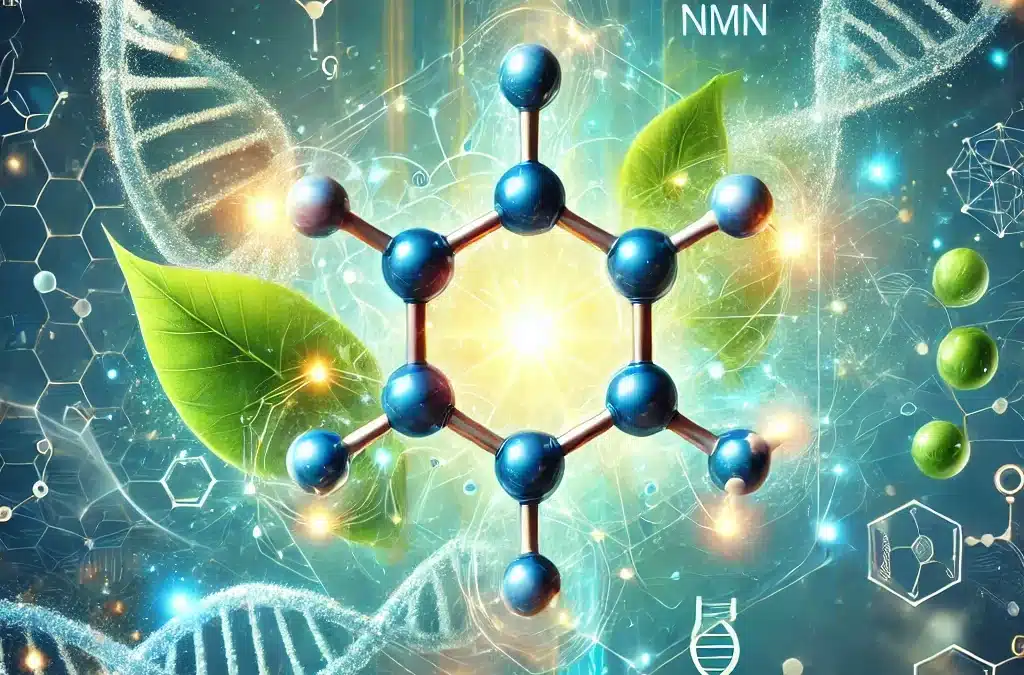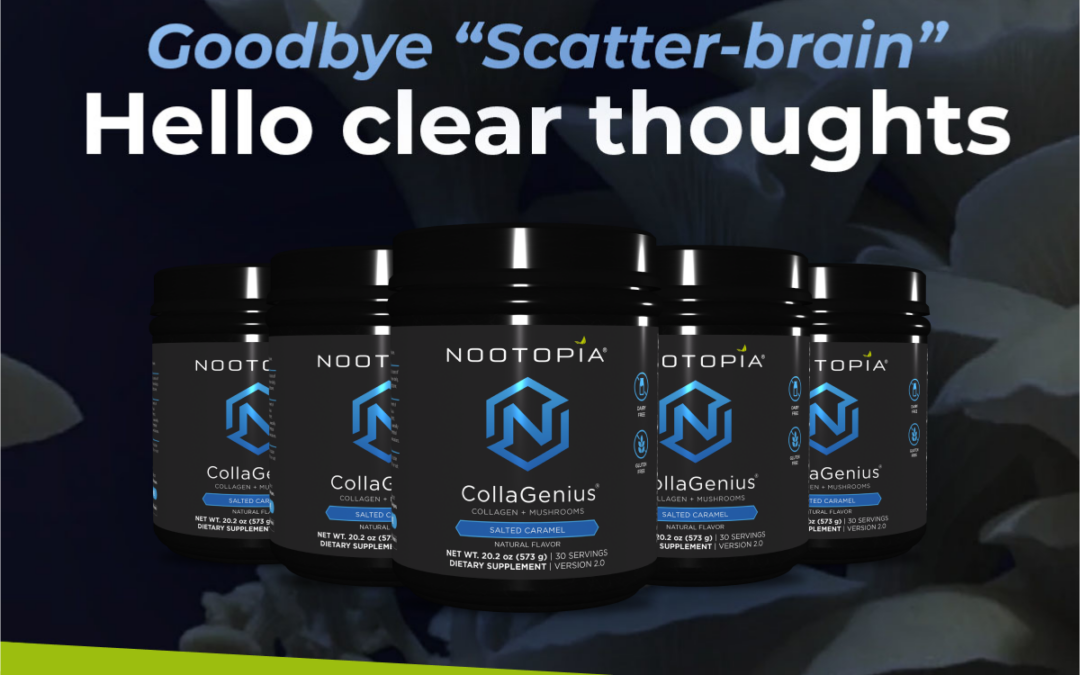
by Richard Walicki | Oct 16, 2024 | Anti-Aging, Supplements
The anti-aging potential of NMN supplement benefits is making waves in the health world. NMN, short for Nicotinamide Mononucleotide, is celebrated for its role in boosting energy, enhancing cellular health, and even supporting DNA repair. Available through ToothWizVitamins, NMN supplements offer a convenient way to rejuvenate your body from within. To explore top-quality NMN products, visit our Fullscript catalog, and sign up for a free account at bit.ly/toothwizvitamins.
What is NMN?
Nicotinamide Mononucleotide (NMN) is a precursor to NAD+ (Nicotinamide Adenine Dinucleotide), a molecule critical for cellular energy and longevity. As we age, our NAD+ levels naturally decline, leading to symptoms of aging, fatigue, and reduced cellular function. NMN supplements help to replenish NAD+ levels, providing benefits like increased vitality, better metabolic health, and enhanced DNA repair.
The Benefits of NMN Supplements
Let’s look at the specific NMN supplement benefits that support healthy aging and boost overall wellness:
1. Increased Cellular Energy
NMN enhances mitochondrial function, helping cells produce more energy. This energy boost is one of the key NMN supplement benefits for those seeking increased endurance and overall vitality.
2. Enhanced DNA Repair
NAD+ supports sirtuins, enzymes involved in DNA repair. By boosting NAD+ levels, NMN can aid in repairing cellular damage caused by environmental stressors and the aging process.
3. Improved Metabolism
Another one of the significant NMN supplement benefits is improved metabolic health. NMN has been shown to regulate blood sugar levels and support fat metabolism, aiding in weight management and metabolic balance.
4. Supports Cognitive Function
NMN supplements offer neuroprotective benefits, helping to support brain health and possibly reduce the risk of age-related cognitive decline.
Choosing the Right NMN Supplement
Fullscript carries a selection of high-quality NMN supplements available on ToothWizVitamins. Here are a few popular options:
- NMN by InfiniWell
- Liposomal NMN Synergy by Designs for Health
- NMN 300 by Vita Aid Professional Therapeutics
- Revital Age Ultra by Pure Encapsulations
- Mitochondrial ATP by Pure Encapsulations
Each supplement provides unique formulations to meet individual needs. Visit our Fullscript catalog to browse and sign up for a free account at bit.ly/toothwizvitamins to access these products.
How to Get Started with NMN
Exploring NMN supplement benefits is easy. Once you’ve browsed the Fullscript catalog, you can create a free account using our link to access NMN supplements and other top-quality health products.
Choosing NMN supplements through Fullscript means you’re getting professional-grade products that health practitioners trust. Take charge of your anti-aging journey and feel the difference that NMN can make.
Ready to Rejuvenate with NMN?
Embrace the potential of NMN supplement benefits and take a step towards healthier aging. Visit our ToothWizVitamins page to explore professional-grade NMN products, then sign up for a free Fullscript account at bit.ly/toothwizvitamins. Start your journey to better energy, enhanced metabolism, and a more vibrant you today!

by Richard Walicki | Aug 25, 2024 | Anti-Aging, Supplements
In today’s fast-paced world, maintaining sharp focus and mental clarity is more important than ever. Whether you’re managing the complexities of daily life, pushing through a challenging work project, or simply striving to stay mentally sharp as you age, the quest for cognitive enhancement is universal. This is where nootropics, often called “smart drugs,” come into play. But before diving into this trend, it’s crucial to understand what nootropics are and how to choose safe, effective options.
What Are Nootropics?
Nootropics are substances that aim to improve cognitive function, particularly in areas such as memory, creativity, focus, and motivation. While the term can encompass a wide range of products, including both natural and synthetic compounds, this article will focus on natural nootropics, which have a better safety profile and are supported by traditional use and scientific studies.
The Natural Path to Enhanced Focus and Clarity
Unlike synthetic nootropics, which are often designed in a lab and may carry potential risks, natural nootropics are derived from plants, herbs, and other naturally occurring substances. These have been used for centuries in traditional medicine and are now being studied for their ability to support brain health and cognitive function safely.
Some of the most well-known natural nootropics include:
- Ginkgo Biloba: This ancient tree extract is believed to enhance memory and cognitive speed by improving blood flow to the brain. It’s widely used in traditional Chinese medicine and has been the subject of numerous studies.
- Rhodiola Rosea: Often referred to as an adaptogen, Rhodiola helps the body adapt to stress and fatigue, which in turn can improve mental clarity and focus.
- L-Theanine: Found in green tea, L-Theanine promotes relaxation without causing drowsiness. When combined with caffeine, it can provide a calm yet alert state, making it easier to focus on tasks that require sustained mental effort.
- Lion’s Mane Mushroom: This unique mushroom is known for its potential to support nerve growth and cognitive function. It’s often used to enhance memory and protect against age-related cognitive decline.
These natural nootropics work by supporting various aspects of brain health, such as improving blood circulation, reducing stress, and enhancing the function of neurotransmitters, all of which are essential for maintaining focus, clarity, and overall cognitive performance.
Why Choose Natural Over Synthetic?
While synthetic nootropics may offer quick and potent effects, their long-term safety remains a concern. Many synthetic compounds have not been studied extensively over long periods, and their impact on the brain and body is not fully understood. On the other hand, natural nootropics have a long history of use, both in traditional medicine and in modern supplements, and are generally considered safer.
If you’re looking for a way to enhance your cognitive abilities without risking your long-term health, sticking to natural nootropics is the way to go. These substances offer a gentler, more sustainable approach to boosting mental performance, allowing you to stay sharp and focused without the potential downsides associated with synthetic alternatives.
Take the Next Step in Cognitive Enhancement
For those interested in exploring natural nootropics further, Nootopia offers a range of products that harness the power of nature to support brain health and cognitive performance. Their carefully formulated supplements are designed to enhance focus, memory, and clarity in a safe and effective way, making them an excellent choice for anyone looking to unlock their brain’s full potential.
If you create a BiOptimizers account using my affiliate link, you can order Nootopia products and save an additional 10 percent at checkout by using the coupon code SAVE10.
By choosing natural nootropics, you can enjoy the benefits of enhanced cognitive function while maintaining your overall health and well-being. Whether you’re seeking to improve your performance at work, support your brain as you age, or simply stay sharp in your daily life, there’s a natural solution that can help you achieve your goals.

by Richard Walicki | Jul 28, 2024 | Anti-Aging, Supplements
In the quest for longevity and youthful vitality, biohacking has emerged as a revolutionary approach. It involves making strategic, science-based interventions to optimize your body’s potential. This blog post explores the fascinating world of biohacking and how it can be specifically applied to anti-aging, helping you look and feel younger.
What is Biohacking?
Biohacking encompasses a range of practices that aim to fundamentally transform your health and prolong your life. This can involve anything from genetic engineering and DIY biology to lifestyle and dietary changes that encourage your body to function at its peak.
Biohacking Techniques for Anti-Aging
- Nutrigenomics – Understanding how different foods affect your genes can lead you to a personalized diet that not only enhances your health but also slows aging.
- Intermittent Fasting – This eating pattern cycles between periods of fasting and eating, which can trigger cellular repair processes and improve metabolic health—key components in reducing the aging process.
- Cold Exposure – Short exposures to cold can increase metabolism, reduce inflammation, and enhance resilience, all of which are beneficial for anti-aging.
- Supplementation – Specific supplements can support cellular health and longevity. Ingredients like resveratrol, curcumin, and omega-3 fatty acids are known for their anti-aging properties.
How BIOptimizers Can Help
For those ready to take their anti-aging journey further, BIOptimizers offers an array of products tailored to enhance your biohacking experience. From supplements that boost mitochondrial efficiency to those that support digestive health, BIOptimizers helps you address the biological factors that contribute to aging.
Special Offer: Visit BIOptimizers and use the code SAVE10 to get an additional 10% off on your purchase.
Starting Your Biohacking Journey
Whether you’re new to biohacking or looking to refine your approach, it’s never too late to start. Small, consistent changes can lead to significant improvements in how you age, impacting everything from your skin to your energy levels.
Biohacking offers exciting possibilities for those interested in anti-aging. By understanding and applying these principles, you can take control of your health and actively participate in shaping your longevity.

by Richard Walicki | Jun 19, 2024 | Anti-Aging, Supplements
Salt is a staple in our diets, but not all salts are created equal. Today, we’ll explore the differences between Himalayan, Celtic, and Baja Gold Sea Salt, their potential health impacts, and their relevance to anti-aging.
A Tale of Three Salts
Himalayan Sea Salt
Pink Himalayan sea salt is mined from ancient sea beds in the Himalayas. It’s known for its beautiful pink color and mineral richness1. However, recent studies have raised concerns about the presence of heavy metals in some brands12. While these levels are typically within safe limits2, it’s important to choose a reputable brand to ensure quality and safety1.
Celtic Salt
Celtic salt is harvested from the Atlantic seawater off the coast of France. It’s less processed than other salts, allowing it to retain higher moisture and trace minerals3. However, these minerals are present only in very small amounts3.
Baja Gold Sea Salt
Baja Gold Sea Salt is harvested from the Sea of Cortez and is unique due to its low salinity and rich mineral content3. It contains over 90 minerals and more than 50,000 organic compounds3.
The Salt and Anti-Aging Connection
While salt is often associated with negative health impacts, it’s important to remember that sodium, a component of salt, plays a crucial role in our bodies. It helps maintain fluid balance, nerve function, and muscle contraction4. However, too much sodium can lead to high blood pressure, heart disease, and stroke4.
Sodium and Blood Pressure
Contrary to popular belief, sodium is essential for our bodies. However, consuming too much can lead to high blood pressure4. The American Heart Association recommends an ideal limit of no more than 1,500 mg per day for most adults4567.
Salt and Joint Health
There’s some evidence suggesting that reducing salt intake can help reduce calcium loss from bones, thereby reducing osteoporosis and fracture risk8. However, the relationship between salt and joint health is complex and more research is needed to fully understand it9.
The Verdict
While salt is a necessary part of our diet, it’s important to consume it in moderation. Choosing high-quality salts can provide additional minerals, but these should not be relied upon as a primary source of nutrition. As always, it’s best to consult with a healthcare provider for personalized advice.
Remember, the key to a healthy diet is balance. So, while salt can add flavor to our meals, let’s use it wisely for our health and longevity.
Disclaimer: This article is intended for informational purposes only. It’s not a substitute for professional medical advice, diagnosis, or treatment. Always seek the advice of your healthcare provider with any questions you may have regarding a medical condition.

by Richard Walicki | May 10, 2024 | Anti-Aging, Supplements
In the quest for a leaner, stronger physique, many of us turn to the gym, dedicating hours to lifting weights. But what if there was a way to accelerate muscle growth without ever touching a dumbbell? The answer lies in the power of proteolytic enzymes, and it’s transforming the way we think about fitness and muscle development.
The Power of Proteolytic Enzymes: Proteolytic enzymes are not just any supplement; they are the key to unlocking your body’s muscle-building potential. These enzymes enhance your body’s ability to digest protein, ensuring that the nutrients from your food are absorbed more completely. The result? A flood of amino acids that are essential for muscle repair and growth.
Introducing MassZymes: BiOptimizers has developed MassZymes, a high-quality proteolytic enzyme supplement designed to maximize muscle growth. MassZymes isn’t just another product on the shelf; it’s the world’s strongest protein-digesting enzyme, crafted for those who want to build muscle quickly and efficiently.
Real Results That Speak Volumes: Skepticism is natural when it comes to supplements, but MassZymes has proven its worth. The co-founder of BiOptimizers experienced remarkable growth, adding ¾ of an inch to his arms in just four weeks. This isn’t an isolated success story; users consistently report significant gains and improved digestion.
A Limited-Time Offer You Can’t Miss: For those ready to take their fitness to the next level, there’s never been a better time. Rakuten is offering a 15% cashback on purchases, and with the checkout code SAVE10, you can enjoy an additional 10% off your total order through our exclusive affiliate link at
bit.ly/BIOptimizers.
Why MassZymes Is the Enzyme for the Masses: MassZymes stands out because of its proprietary formula, which is so effective that it’s legally protected. This isn’t just about building muscle; it’s about optimizing your health and metabolism. Whether you’re looking to enhance your appearance or boost your overall well-being, MassZymes is the supplement that delivers. The journey to a stronger, leaner body doesn’t have to be grueling. With MassZymes, you can achieve your fitness goals with ease. Don’t miss out on this opportunity to triple your protein effectiveness and see the difference for yourself. Ready to revolutionize your muscle growth? Click the button below to take advantage of this incredible offer and start your journey with MassZymes today!







